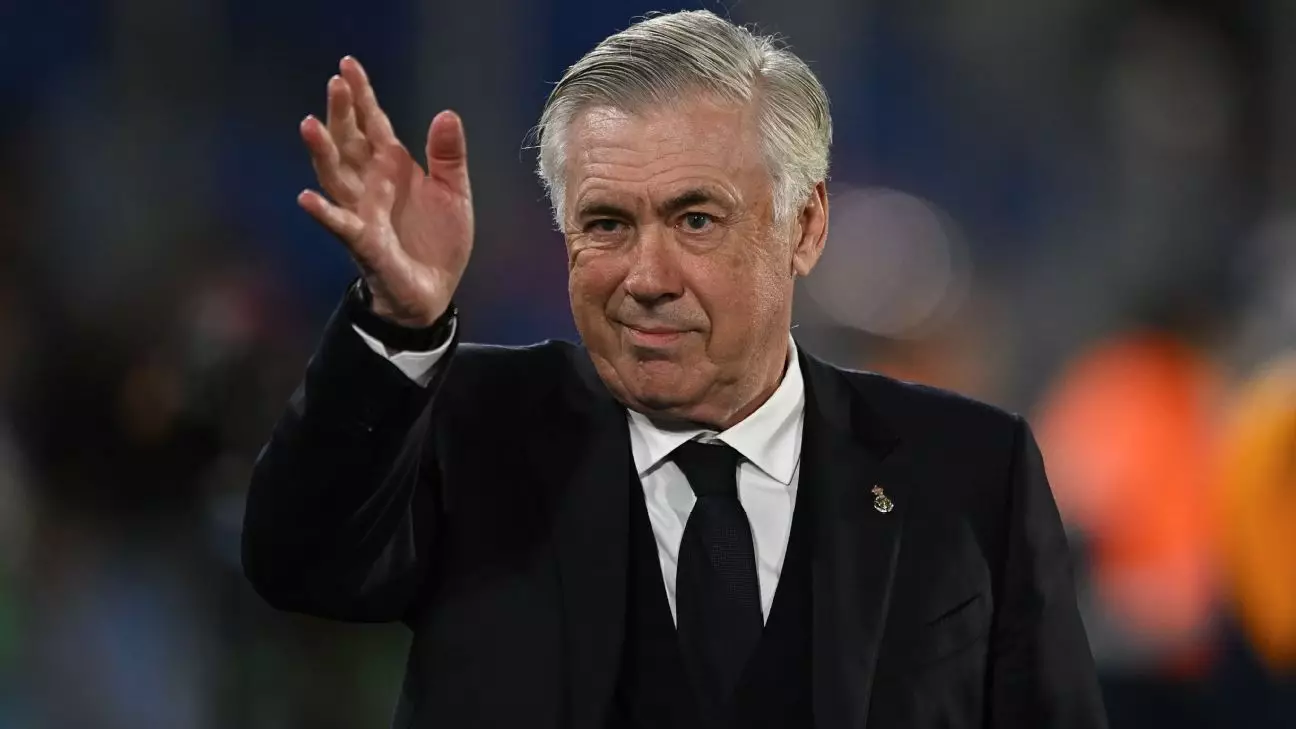Real Madrid is navigating a pivotal moment in its storied history, marked by ambitious aspirations and the humbling acknowledgement of current shortcomings. Following a season where the prestige and reputation of the club faced unprecedented challenges, the task at hand is monumental. With rivals FC Barcelona unapologetically seizing the La Liga title, Madrid finds itself under the microscope, reassessing its structure and future prospects. The urgency to reinforce a defensive line crippled by injuries has brought forth a series of signings, including the much-anticipated arrival of young centre-back Dean Huijsen.
Coach Carlo Ancelotti has made it clear that despite his team’s recent hardships—including an early exit from the Champions League and a missed opportunity in the Copa del Rey—he has faith in the club’s ability to bounce back. His statements reflect a nuanced understanding of the complexities behind player acquisitions and team dynamics, as injuries to stalwarts like Éder Militão and Dani Carvajal severely hampered performances throughout the season. Ancelotti’s commitment to transparency and responsibility offers a refreshing candidness, especially in an environment often swathed in secrecy.
The Complications of a Rebuilding Process
Contrary to the expectations of apathetic fans, Ancelotti has expressed no regrets about the club’s transfer strategy, citing a lack of feasible options during crucial windows. “Last year [signing a defender] wasn’t an option,” he asserted, defending the decisions made during his tenure. His remarks resonate as he brings a broader perspective, highlighting how the club’s approach was predicated on logic and operational constraints rather than whimsical decisions.
However, as Madrid seeks to forge a new path, the need for robust and consistent players cannot be overstated. The club is already in advanced talks with high-profile individuals such as Trent Alexander-Arnold, renowned for his attacking enterprise from the back, and Benfica’s Álvaro Carreras. Such strategic moves appear to be part of a larger vision to rebuild and fortify the defense as well as rejuvenate competitive spirit among the ranks. Yet, the pressing need to streamline transitions indicates an urgency that the management must address to avoid the pitfalls of complacency, which have often plagued storied clubs.
Ancelotti’s Ambitions: Beyond Madrid
As Ancelotti prepares to transition from Madrid to captain the Brazil national team, the anticipated change in leadership will serve as a new chapter for both him and the club. While his historic tenure has been marked by success, this final act presents a complex yet thrilling challenge characterized by managing expectations set against a backdrop of elite football.
His statement commending Barcelona’s consistency and performance underscores a hallmark of professionalism and respect very seldom seen in high-stakes football. Ancelotti’s acknowledgment of the adversary’s accomplishments illustrates a mentality focused not only on upward mobility for Madrid but also on fostering an environment where rivalries thrive on merit rather than old grudges. This perspective is vital as Madrid prepares for the future, just as its new manager, Xabi Alonso, is set to inherit a club demanding renewal and excellence.
Charting New Territories
For fans and analysts alike, the pursuit of defensive reinforcements is symbolic of a more profound commitment to excellence. Madrid’s historic legacy is underpinned by not solely winning trophies but by embodying a philosophy where every season is an opportunity for growth. As the club gears up for the upcoming transfer window and final domestic fixtures, the challenge will lie in striking a balance between integrating fresh talent and retaining the squad’s core identity.
The club’s proactive approach to scouting and signing promising players indicates their readiness to embrace a youth movement, reaffirming their longstanding desire to elevate homegrown talent while simultaneously strengthening the squad. This duality represents a crucial pivot-point: transitioning effectively from an era marked by seasoned veterans toward a more dynamic and youthful squad, driven by the principles of hard work and resilience that Real Madrid has always espoused.
Ultimately, Real Madrid stands at the precipice of change, poised to re-emerge as a formidable force in both La Liga and Europe if it can navigate the complexities of transition with intention and clarity. The next chapter is laden with anticipation, hope, and the undeniable thrill of possibility.

